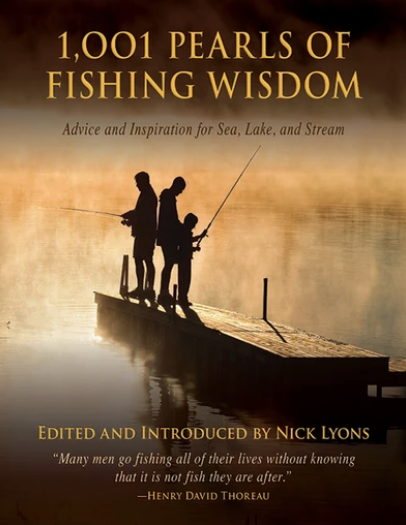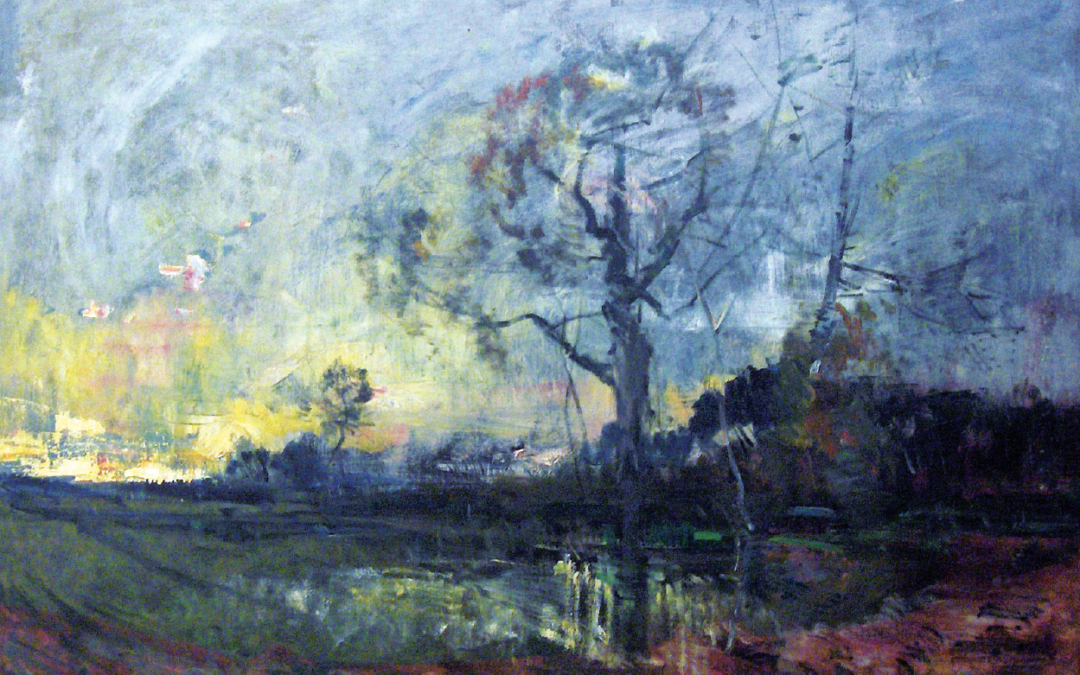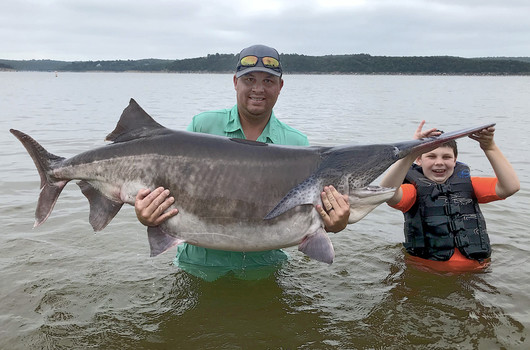A lake is the landscape’s most beautiful and expressive feature. It is earth’s eye, looking into which the beholder measures the depth of his own nature.
“Home is the sailor, home from the sea.” Whether the voice hails from the salty ocean, a great lake, trickling brook or mossy swamp, all sportsmen seemingly have a body of water that calls to them. Norman Maclean was haunted by rivers. Hemingway was smitten by the waters around Cuba. For Henry David Thoreau, it was his beloved Walden Pond.
After a still winter night I awoke with the impression that some question had been put to me, which I had been endeavoring in vain to answer in my sleep, as what—how—when—where? But there was dawning Nature, in whom all creatures live, looking in at my broad windows with serene and satisfied face, and no question on her lips. I awoke to an answered question, to Nature and daylight. The snow lying deep on the earth dotted with young pines, and the very slope of the hill on which my house is placed, seemed to say, Forward! Nature puts no question and answers none which we mortals ask. She has long ago taken her resolution. “O Prince, our eyes contemplate with admiration and transmit to the soul the wonderful and varied spectacle of this universe. The night veils without doubt a part of this glorious creation; but day comes to reveal to us this great work, which extends from earth even into the plains of the ether.”
Then to my morning work. First, I take an axe and pail and go in search of water, if that be not a dream. After a cold and snowy night, it needed a divining rod to find it. Every winter the liquid and trembling surface of the pond, which was so sensitive to every breath, and reflected every light and shadow, becomes solid to the depth of a foot or a foot and a half, so that it will support the heaviest teams, and perchance the snow covers it to an equal depth, and it is not to be distinguished from any level field. Like the marmots in the surrounding hills, it closes its eyelids and becomes dormant for three months or more. Standing on the snow-covered plain, as if in a pasture amid the hills, I cut my way first through a foot of snow, and then a foot of ice, and open a window under my feet, where, kneeling to drink, I look down into the quiet parlor of the fishes, pervaded by a softened light as through a window of ground glass, with its bright sanded floor the same as in summer; there a perennial waveless serenity reigns as in the amber twilight sky, corresponding to the cool and even temperament of the inhabitants. Heaven is under our feet as well as over our heads.
Early in the morning, while all things are crisp with frost, men come with fishing reels and slender lunch, and let down their fine lines through the snowy field to take pickerel and perch; wild men, who instinctively follow other fashions and trust other authorities than their townsmen, and by their goings and comings stitch towns together in parts where else they would be ripped. They sit and eat their luncheon in stout fear-naughts on the dry oak leaves on the shore, as wise in natural lore as the citizen is in artificial. They never consulted with books, and know and can tell much less than they have done. The things which they practice are said not yet to be known. Here is one fishing for pickerel with grown perch for bait. You look into his pail with wonder as into a summer pond, as if he kept summer locked up at home, or knew where she had retreated. How, pray, did he get these in midwinter? Oh, he got worms out of rotten logs since the ground froze, and so he caught them. His life itself passes deeper in nature than the studies of the naturalist penetrate; himself a subject for the naturalist. The latter raises the moss and bark gently with his knife in search of insects; the former lays open logs to their core with his axe, and moss and bark fly far and wide. He gets his living by barking trees. Such a man has some right to fish, and I love to see nature carried out in him. The perch swallows the grub-worm, the pickerel swallows the perch, and the fisherman swallows the pickerel; and so all the chinks in the scale of being are filled.
When I strolled around the pond in misty weather, I was sometimes amused by the primitive mode which some ruder fisherman had adopted. He would perhaps have placed alder branches over the narrow holes in the ice, which were four or five rods apart and an equal distance from the shore, and having fastened the end of the line to a stick to prevent its being pulled through, have passed the slack line over a twig of the alder, a foot or more above the ice, and tied a dry oak leaf to it, which, being pulled down, would show when he had a bite. These alders loomed through the mist at regular intervals as you walked halfway round the pond.
Ah, the pickerel of Walden! when I see them lying on the ice, or in the well which the fisherman cuts in the ice, making a little hole to admit the water, I am always surprised by their rare beauty, as if they were fabulous fishes, they are so foreign to the streets, even to the woods, foreign as Arabia to our Concord life. They possess a quite dazzling and transcendent beauty which separates them by a wide interval from the cadaverous cod and haddock whose fame is trumpeted in our streets. They are not green like the pines, nor gray like the stones, nor blue like the sky; they have, to my eyes, if possible, yet rarer colors, like flowers and precious stones, as if they were the pearls, the animalized nuclei or crystals of the Walden water.
They, of course, are Walden all over and all through; are themselves small Waldens in the animal kingdom, Waldenses. It is surprising that they are caught here— that in this deep and capacious spring, far beneath the rattling teams and chaises and tinkling sleighs that travel the Walden road, this great gold and emerald fish swims. I never chanced to see its kind in any market; it would be the cynosure of all eyes there. Easily, with a few convulsive quirks, they give up their watery ghosts, like a mortal translated before his time to the thin air of heaven.
Editor’s Note: “The Pond in Winter” is a chapter from Walden, and On The Duty of Civil Disobedience by Henry David Thoreau, written in 1854.
 With insight from Joan Wulff and Dave Hughes, Izak Walton and George Orwell, Thomas McGuane and Ernest G. Schwiebert, Jr., and so many more,1,001 Pearls of Fishing Wisdom highlights the joys and frustrations of this beloved sport. In addition to quotes by fishing experts and enthusiasts, Lyons features profiles of some of the most well-respected writers, journalists, and anglers in history, making the collection even more valuable for those not yet familiar with some of the sport’s greatest sages. Buy Now
With insight from Joan Wulff and Dave Hughes, Izak Walton and George Orwell, Thomas McGuane and Ernest G. Schwiebert, Jr., and so many more,1,001 Pearls of Fishing Wisdom highlights the joys and frustrations of this beloved sport. In addition to quotes by fishing experts and enthusiasts, Lyons features profiles of some of the most well-respected writers, journalists, and anglers in history, making the collection even more valuable for those not yet familiar with some of the sport’s greatest sages. Buy Now




